I rarely do this with a poem, but for this one I feel I need to offer something like a prologue:
This poem (now one of the pieces that are part of We See—red dress installation—at Bleeding Heart Art Space, Edmonton), attempts to weave together strands of personal stories from missing and murdered aboriginal women; grief, anger and sorrow of families who have endured loss; the dismissive ignorance, cultural blindness and shoddy attempts of having us all “get over it,” that I am part of, guilty of; and finally, the hope of justice, the hope of reconciliation, and even, in the generation(s) to come, the hope of true forgiveness.
I also must ask, regarding this poem, for great forbearance for taking a first person point of view. As a white male, to assume the voice of a Plains Cree woman is no doubt folly if not myopic hubris. However, as I read and reread the stories of the murdered and missing aboriginal women, as provided by their families, as well as transcripts from the Truth & Reconciliation Commission, and began to write, over time, it is the voice that came.
I offer the following words in humility and hope—simply that.
Look at this Dress
I am not whole.
Death has not made me so.
Do not rhapsodize me heroic,
and so dismiss me.
Simply say I was human, say I was Plains Cree,
say I was someone who liked nature,
who liked painting my nails,
jumping on a trampoline.
Say I sought to be held in arms
to slake the craving that every human has.
Say I hoped, one day, to be a healer
and carry the wisdom of my grandmothers.
And do not make my culture an idol—stop your stealing.
Stop crowding me, shrouding me,
through your monuments, and self-indulgent remorse.
Rather, let us meet, not in your square rooms,
but on the plains, on a rise, where our eyes
may lift as one, and scan a just horizon.
Will you not learn that when you take,
you lose the ability to see?
This empty dress, this hole you leave,
is it not the hole you sit in, stunted, ignorant, blind?
Do not ask me to relinquish my grievance.
Now is not the time to presume my forgiveness
and add to the damage.
Go to my sisters, my children, and sit in silence,
listen to their broken tongues.
If forgiveness comes,
it will come on its own, in its time,
like a messenger, a mystery,
unseen as the wind that moves the summer grass.
You will know it’s at hand
when we sit down together and eat,
to talk of our likeness and difference,
to celebrate what will not be assimilated.
You will know it has come when the dreams return,
when you look through these eyes that held the sky,
and take the reins of some proud horse and ride—
ground-pound rough, hair flying, laughing.
Until that day, pray
to be reduced, misused, abandoned, misunderstood.
Pray you lose your reputation.
Pray your soul turns in tortuous knots
and twists with choked-off hopes.
Pray your heart undergoes an immense and complex burden.
In that day you will seek a single drop
for your burning tongue,
and I will bring you a bucket of cool water.
You will call out across the divide,
and I will rush to your side,
speak quietly, reassuringly.
Until that hopeful uniting,
look at this red dress.
See me.
The pictures were taken at the opening ceremony of We See

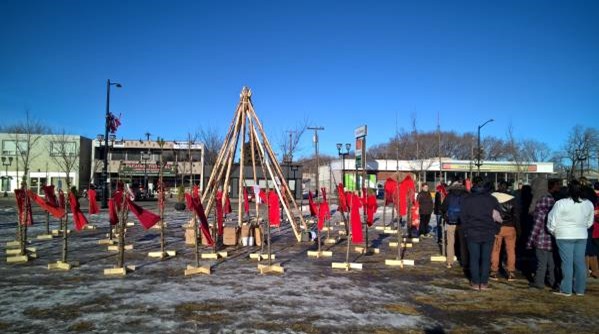
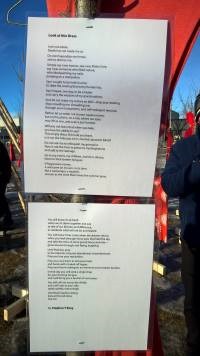
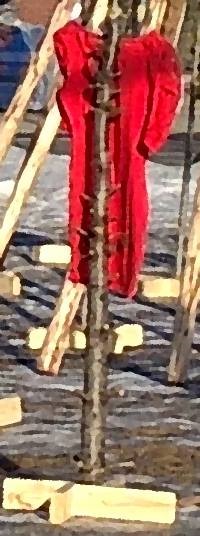
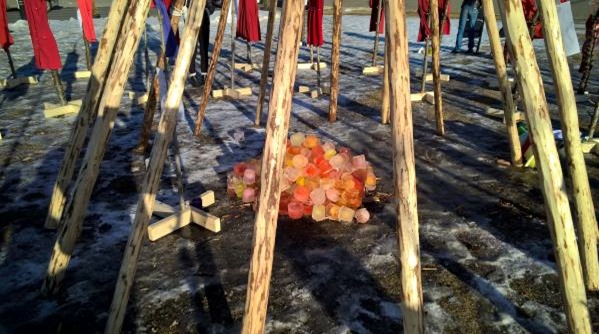
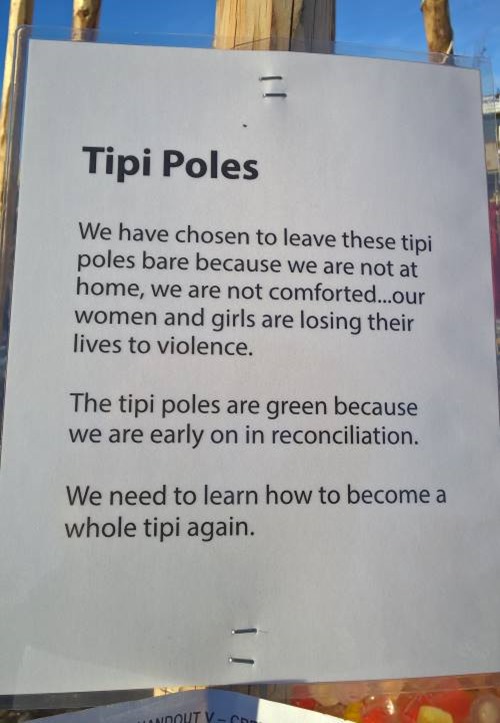
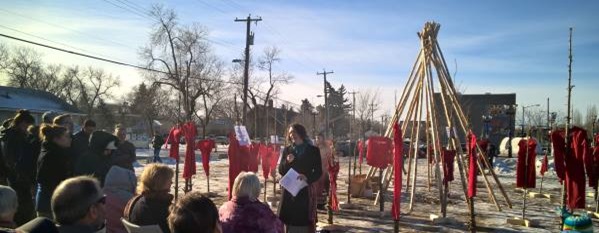
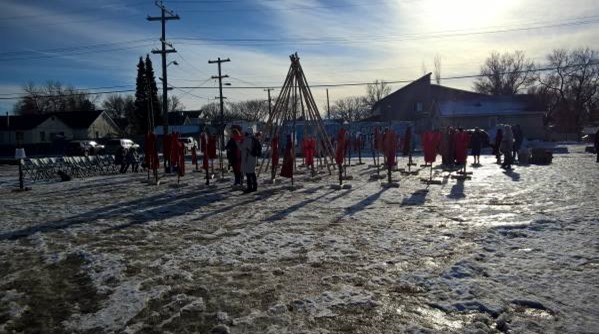
Arresting, Steve, and profoundly moving!
Thank you Ike!
Excellent!
moving and honest, leads to healing, sanity, hope
Empathy is an amazing and important thing, and key, I think, to the most poignant writing. It’s not unusual for a poet to inhabit the voice, or emotions of another — even someone who has experience far outside our own — in an effort to learn about, not only the “other”, but ourselves too. This poem is heartfelt, honest and a beacon for understanding.
Tank you Liane!
Thank you Gordon!
Thank you for those kind and encouraging words Kim!
No myopic hubris here at all. Only empathy, which is, in my view, essential to good writing, and mostly absent. It’s a moving and beautiful look at the complexity of forgiveness and making amends, and how we usually get it wrong forever before getting it right. Thank you for bringing us all along with you.
Thank you so much Connie (and fellow empathetic writer). That means a lot to me.
“Will you not learn that when you take,
you lose the ability to see?”
We’re most blind to injustice when we’re the beneficiaries of it.
“In that day you will seek a single drop
for your burning tongue,
and I will bring you a bucket of cool water.”
So painful to read. Yet … the promise of living water!!
Thanks for that Sam!